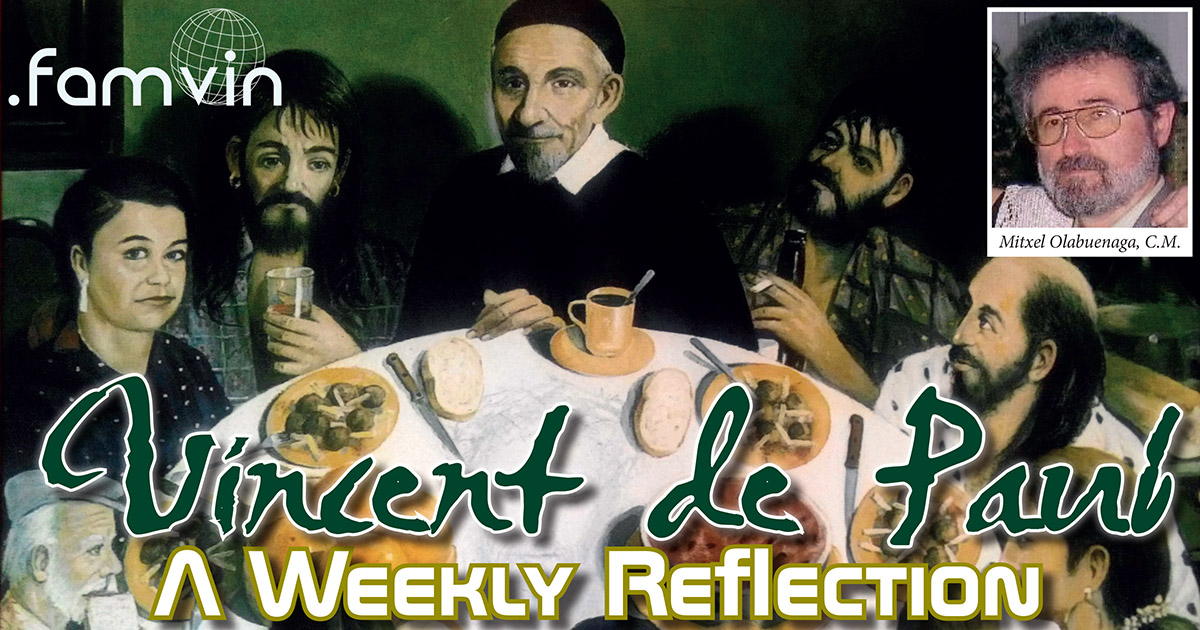“Mon Dieu! What a lovely title and what a beautiful designation! What have you done for God to deserve it? Servants of the Poor is the same as saying Servants of Jesus Christ, since He regards what is done to them as done to himself, for they are His members. And what did He do in this world but serve persons who were poor? Preserve this title carefully, dear Sisters, for it’s the most beautiful and the most worthwhile one you could have. ” (CCD, volume 9, conference 30).
Vincent de Paul
Reflection:
- In a society that people measured his position by the titles one may have, it is not surprising to see Mr. Vincent motivating his “flock” with the previous paragraph: with a title that the Gascon qualifies and puts in the population pyramid below the lowest: “servants of the poor.” Moreover, he places them outside the social order, if we take into account that the “poor” did not occupy any place and were considered as an “addition” to which it was necessary to attend.
- And it is not only a “beautiful title” but a “beautiful quality.” In other words, the adjective is added to the noun. And it is because it carries a significant reverse: “servants of the poor” – “servants of Jesus Christ.” An affirmation that has nothing theoretical but marks the personal and institutional charisma of Mr. Vincent. The poor are the permanently current face of the presence of Jesus Christ among humanity.
- “Being servants of the poor” forces, from this perspective, to be “on the side of the poor” not only to “accompany them in their poverty” but to encourage them “to leave it.” It is clear, therefore, that to “personal poverty” is added the “structural poverty” and that “personal accompaniment” must be added the “denunciation of structures” that generate poor people. The “poor” exist because the “rich” create unjust power structures.
- “Going” to the poor, “serving” the poor, “evangelizing” the poor … is therefore only one side of the coin of the Vincentian charism; the other is the “prophetic denunciation” of any unjust structure that generates poor or that drowns any attempt to improve their living conditions. Task ahead!
Questions for dialogue:
- Are we full-time servants of the poor?
- Is the prophetic denunciation present in our institutions?
- Do you accompany a poor person to improve their living conditions?
- Does “servants of the poor” today have any “translation”?
Mitxel Olabuenaga, C.M.
![]() Mitxel.OlabuenagaOrnes
Mitxel.OlabuenagaOrnes








0 Comments